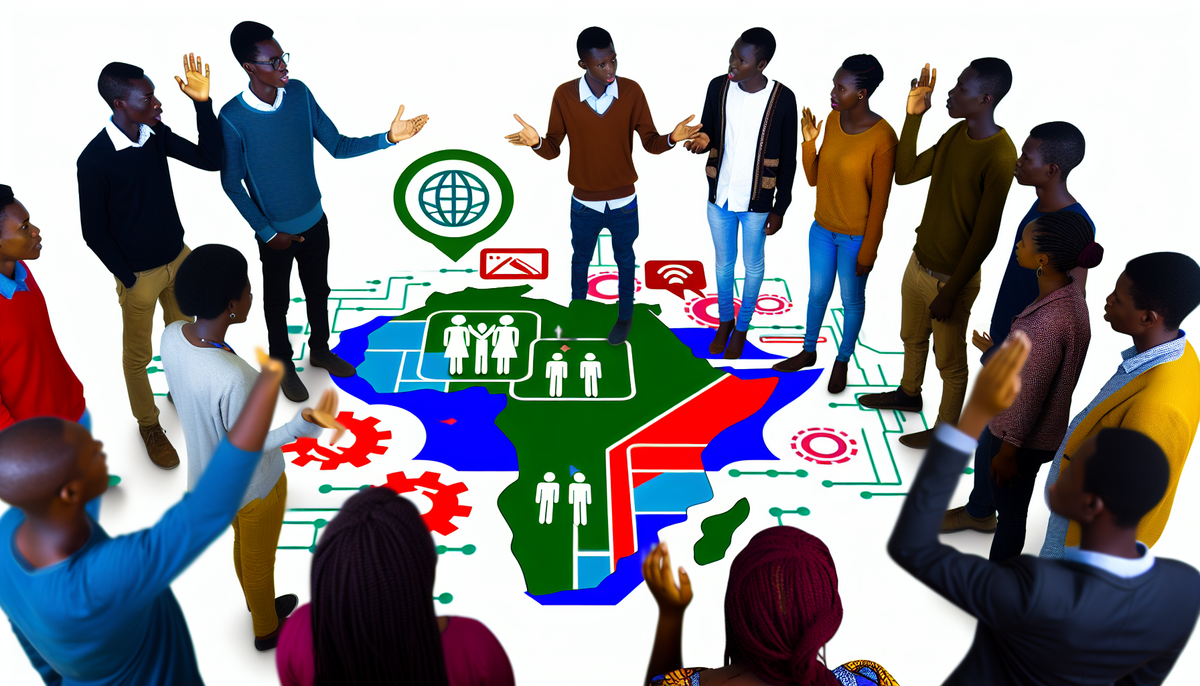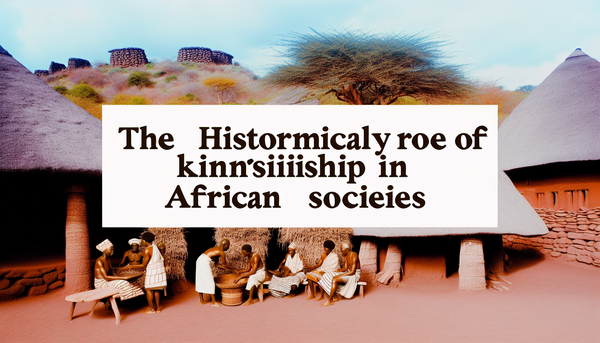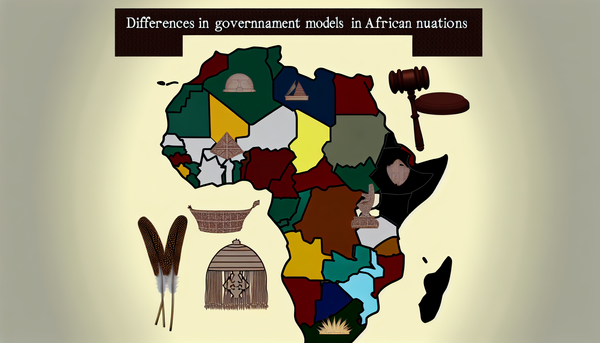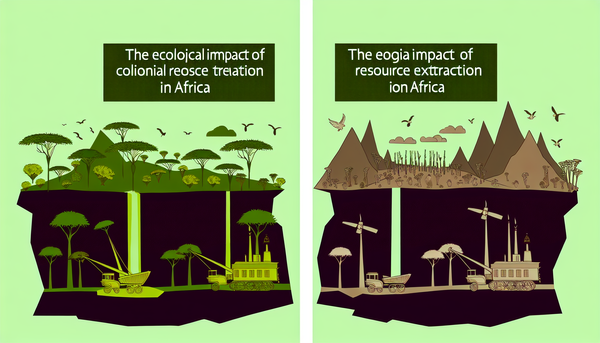The Role of Youth in Shaping Modern African Politics

The Historical Context of Youth Movements in Africa
Youth movements in Africa have a rich and diverse history that dates back to the early 20th century, often intertwined with the continent's struggle for independence and social justice. The emergence of these movements was fueled by the desire for political representation, economic opportunities, and social rights, particularly in the face of colonial rule.
During the post-colonial period, young Africans became increasingly aware of the challenges that new governments faced, including corruption and mismanagement. Youth organizations, such as the African National Congress Youth League in South Africa, played significant roles in leading protests against oppressive regimes. Their efforts were pivotal in galvanizing nation-wide support for liberation movements.
As the decades progressed, the advent of globalization and technological advancements led to a new wave of youth activism. The rise of social media platforms in the 21st century transformed how young people organized protests and voiced their concerns, exemplified by movements like the Arab Spring. In recent years, issues such as climate change, unemployment, and social injustice have further motivated African youth to collaborate and push for political reforms. This historical context sets the foundation for understanding the contemporary influence of youth on African politics today.
Influence of Digital Media on Political Engagement
Digital media has revolutionized political engagement among African youth, providing platforms that facilitate communication, mobilization, and advocacy. With the proliferation of smartphones and increased internet access, young people across the continent can share ideas and organize movements with unprecedented efficiency. Social media channels such as Twitter, Facebook, and Instagram serve as vital tools for disseminating information and raising awareness about pressing social and political issues.
The ability to connect with like-minded individuals fosters a sense of community and shared purpose, empowering youth to take action against injustices. For instance, hashtags like #EndSARS in Nigeria have sparked widespread protests against police brutality, showing how digital platforms can amplify voices and catalyze real-world change. Additionally, online petitions and campaigns can quickly gain traction, mobilizing thousands in support of various causes.
Moreover, digital media provides an avenue for political discourse, allowing youth to engage with political leaders and participate in discussions that were previously dominated by older generations. This shift not only enhances civic engagement but also encourages accountability among leaders, as the potential for public scrutiny increases. In essence, the influence of digital media has transformed the landscape of political participation, making it more inclusive and dynamic for young Africans today.
Case Studies: Successful Youth-Led Political Changes
Several notable case studies illustrate the significant impact of youth-led movements on political change across Africa. One such instance is the #RhodesMustFall movement in South Africa, which began as a campaign against the statue of Cecil Rhodes at the University of Cape Town. Fueled by young activists, this movement sparked a nationwide debate about colonial legacies in educational institutions, leading to the removal of the statue in 2015 and influencing discussions on broader social justice issues.
Another compelling example is the youth-driven revolution in Sudan, which culminated in the ousting of long-time President Omar al-Bashir in 2019. The Sudanese Professionals Association, comprising largely of young activists, organized mass protests against governmental oppression and economic hardship. Their efforts, fueled by social media campaigns and grassroots mobilization, successfully united diverse segments of the population and pressured the military to intervene.
Similarly, the #FeesMustFall movement, also originating in South Africa, advocated for affordable education and against exorbitant tuition fees. It not only resulted in a significant policy shift concerning tuition but also galvanized a generation of youth activists dedicated to social equity.
These case studies highlight the effectiveness of young leaders in driving systemic political changes and underscore the power of collective action.
Challenges Facing Young African Politicians
Young African politicians encounter a myriad of challenges that can hinder their political aspirations and effectiveness. One of the foremost obstacles is the entrenched political landscape, often dominated by older, established elites who may resist the inclusion of younger voices. These seasoned politicians may leverage their extensive networks and resources to stifle innovation and suppress the ambitions of youth seeking political change.
Additionally, systemic corruption poses a significant barrier. Young politicians often face immense pressure to conform to corrupt practices, as political funding and patronage remain prevalent. This can lead to disillusionment and reluctance to engage in politics for fear of compromising personal integrity.
Moreover, a lack of access to funding and resources can impede young leaders' capacity to run effective campaigns. Financial support is crucial for organizing events, reaching constituents, and promoting their platforms, yet many young politicians struggle to secure the necessary funds.
Social and cultural factors also play a role, as youth are often perceived as inexperienced or lacking the wisdom needed to govern. This perception can lead to skepticism from the electorate, making it challenging for young leaders to gain credibility and establish trust. Overcoming these multifaceted challenges is essential for the emergence of effective youth leadership in African politics.
Educational Initiatives Promoting Political Participation
Educational initiatives play a pivotal role in enhancing political participation among African youth. These programs aim to empower young individuals with the knowledge and skills necessary to engage effectively in political processes. One notable approach is the incorporation of civic education into school curricula, which informs students about their rights and responsibilities as citizens, as well as the functioning of governmental systems. Such education lays the groundwork for informed participation in democratic processes.
Various non-governmental organizations (NGOs) and youth-focused groups also offer workshops and training sessions that equip young people with practical skills in advocacy, public speaking, and campaign management. These initiatives provide platforms for youth to articulate their political aspirations and engage with community issues. For example, programs like the Youth Empowerment and Development Initiative in Nigeria focus on training young leaders to understand policy-making and the importance of civic engagement.
Furthermore, mentorship programs connect aspiring young politicians with experienced leaders, fostering knowledge transfer and network building. These initiatives not only nurture future leaders but also instill a sense of civic duty, encouraging active participation in local and national governance. By promoting educational opportunities, these programs help cultivate a politically engaged youth capable of driving meaningful change across the continent.
Impact of Globalization on African Youth Politics
Globalization has significantly influenced youth politics in Africa, reshaping the landscape of political engagement and activism. The interconnectedness brought about by globalization has facilitated the flow of ideas, information, and resources, allowing young Africans to be more aware of global issues and movements. This heightened awareness has inspired youth to advocate for social justice, human rights, and environmental sustainability, drawing parallels between local struggles and global narratives.
The advent of the internet and social media, key components of globalization, has empowered young people to amplify their voices and mobilize rapidly. Platforms like Twitter and Facebook enable the swift organization of protests and campaigns, connecting youth across borders and fostering a sense of solidarity. Movements such as #BlackLivesMatter have resonated with African youth, inspiring local adaptations that address specific regional issues, such as police brutality and government accountability.
However, globalization also presents challenges, including the potential erosion of local cultures and identities. The influx of foreign influence can marginalize indigenous practices, leading to a complex dynamic where youth navigate between local traditions and global trends. Ultimately, while globalization offers opportunities for youth to engage in political discourse, it also requires a careful balancing of cultural integrity and global awareness in their activism.
Future Prospects for Youth Leadership in Africa
The future prospects for youth leadership in Africa appear promising as generational shifts and technological advancements create new avenues for engagement and influence. With a growing population of young people increasingly educated and connected, there is an unprecedented potential for innovative leadership to emerge. Today's youth are more vocal than ever, championing causes ranging from climate change to gender equality, and demanding accountability from their leaders.
Many governments and organizations are beginning to recognize the importance of youth involvement in political processes, leading to initiatives aimed at mentoring and empowering young leaders. This nurturing environment, combined with expanding access to education and information, positions the next generation to take on significant roles in governance and policy-making.
Furthermore, the rise of digital platforms facilitates greater political mobilization and advocacy, allowing youth to organize effectively and influence national and international agendas. Initiatives such as youth parliaments and forums promote dialogue between young leaders and policymakers, fostering collaborative solutions to pressing societal issues.
As young Africans continue to assert their presence in politics, the landscape is likely to evolve, offering fresh perspectives and approaches to governance. If these trends persist, the continent could witness transformative changes driven by empowered youth leadership in the coming years.



